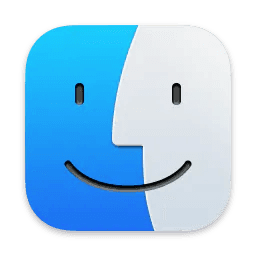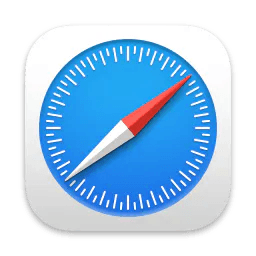HUB
All
All
Marketing
Marketing
Administration
Administration
Creative
Creative
Technical
Technical
Metal
Metal

Oct 15, 2024
Styling Elements Copy
New This Month
This quality update brings canvas and layer panel improvements. We've updated the Component symbol throughout the app to differentiate it from Grids. Plus, we've made Primary Breakpoints and Variants more distinct in the left panel, making it easier to see if you're editing the primary or an instance. Breakpoints will now also show the ranges in the layer panel. See more updates below.
From January
Last month, we added support for automatic tinting and new layout options for components, plus a whole lot of fixes and improvements. If you give your Page a Fill color, this will now also tint browsers like Safari and will ensure you don't get plain white backgrounds when overscrolling on any mobile device. Plus, we've added support for Min Max sizing to all Smart and Code components, greatly simplifying many common layouts and patterns. See the full changelog below.
Pro Tips
Technical
Mental

Sep 23, 2024
Best Practices Copy
Choose Compelling Topics
Use analytics tools to understand demographic data and user behavior. Tailor your content to address audience needs and interests, solving their specific problems. Conduct keyword research with tools like Google Keyword Planner or SEMrush. Analyze industry trends and competitors to select relevant and trending topics that improve SEO. Utilize headline analyzers like CoSchedule's Headline Analyzer. Craft titles that are clear, specific, and contain high-ranking keywords. Use power words to increase click-through rates.
Organize Your Content
Implement a clear structure using HTML tags for headings (H1, H2, H3) and lists (<ul>, <ol>). This enhances readability and SEO. Leverage CSS for formatting to improve UX. Embed high-quality images, infographics, charts, and graphs. Use Framer for creating visuals and optimize them with alt text for SEO. Ensure they are mobile-responsive. Place keywords naturally within the content, especially in headings and subheadings. Optimize meta descriptions, image alt texts, and use internal and external links.
Pagination and SEO
Consider adding pagination for extensive content lists, enhancing performance by reducing load times and improving user experience by making large amounts of content more readable and navigable. Additionally, pagination benefits SEO by facilitating easier search engine crawling and reducing bounce rates. By selecting a list of content coming from the blog, you can click the blue plus icon at the bottom to add infinite scrolling or a load more button. If you add pagination with infinite scrolling, try to avoid positioning layouts like pivots and footers below the loading content. This will help minimize layout shifts, thus not harming SEO.
Monitor Performance
Utilize the built-in Framer analytics to track performance metrics and adjust content strategy based on data insights. By combining these best practices with technical best techniques, you can create a blog that not only engages and informs but also performs well in search rankings and user engagement. Happy blogging!
Pro Tips
Creative
Mental
Technical

Nov 19, 2024
Getting Started Copy
Editing Content
You can choose to set up different types of input fields depending on your content. For instance, a blog might have a title, a slug, and a long-form field for formatted content. These may be different for a product directory or a photo blog, where you may need to add an image field. To edit the fields each CMS item will have, click on any of the column titles. This will trigger a modal to add new fields, where you can also re-arrange the fields or modify or delete the existing ones.
Adding Content to the Canvas
After setting up the content, go back to the canvas. Your collections are accessible from the Insert menu. Open the Insert menu, navigate to the CMS Content section, and drag and drop your collection onto the canvas. This will add a special stack with layers connected to your data. From here, you can edit the visual properties on the right, just as you would do with a regular Stack.
Add a Page with Content
If you wish to add a page instead that will automatically be populated with data from the CMS, navigate to the left panel. One you are in the Pages tab, click on the + button next to the CMS section. If you add the Index page, a page will be added with a list of all of the items in your collection. If you add the Detail page, you will be presented with a page with content from your individual items.
Note: If you chose to add the sample data, a new detail page called /blog will be added to your website, and you will find the stack of content added into the page for you.
The detail page will display content pulled from the first entry of the collection by default. In order to preview other items in the collection, change the content by selecting a different item from the dropdown menu.
Basic
Mid-set
Marketing

Nov 19, 2024
Getting Started
Editing Content
You can choose to set up different types of input fields depending on your content. For instance, a blog might have a title, a slug, and a long-form field for formatted content. These may be different for a product directory or a photo blog, where you may need to add an image field. To edit the fields each CMS item will have, click on any of the column titles. This will trigger a modal to add new fields, where you can also re-arrange the fields or modify or delete the existing ones.
Adding Content to the Canvas
After setting up the content, go back to the canvas. Your collections are accessible from the Insert menu. Open the Insert menu, navigate to the CMS Content section, and drag and drop your collection onto the canvas. This will add a special stack with layers connected to your data. From here, you can edit the visual properties on the right, just as you would do with a regular Stack.
Add a Page with Content
If you wish to add a page instead that will automatically be populated with data from the CMS, navigate to the left panel. One you are in the Pages tab, click on the + button next to the CMS section. If you add the Index page, a page will be added with a list of all of the items in your collection. If you add the Detail page, you will be presented with a page with content from your individual items.
Note: If you chose to add the sample data, a new detail page called /blog will be added to your website, and you will find the stack of content added into the page for you.
The detail page will display content pulled from the first entry of the collection by default. In order to preview other items in the collection, change the content by selecting a different item from the dropdown menu.
Basic
Mental
Technical

Nov 12, 2024
What’s New
Reference Fields
To add Pagination, select your Collection List, click on Pagination, select one of the two options, then pick how many items to load. Pagination also works with existing Limits and Start Offsets. Both the Spinner and Button are completely customizable, and you can pick any Variant for their Loading states. The Spinner itself is just a layer with a conic gradient and a Loop Effect, so you get full control. Adding Pagination helps make your blogs and changelogs much faster to load, especially when they contain dozens of items.
Infinite Scrolling with custom Spinner component
Load More Button with custom Button component
Enjoy freeform positioning of both components
Design your own Loading and Hidden states
Make your CMS Pages much faster to load
Filtering
We've added the ability to filter your collection lists in the CMS. This allows you to keep your content in a single collection, yet customize how that collection is presented on each of your web pages. For example, if you're creating docs for your app, you might want to filter articles per topic on your homepage. Or when creating a blog, you might want to filter your blog posts per category.
Marketing
Basic

Oct 15, 2024
Styling Elements
New This Month
This quality update brings canvas and layer panel improvements. We've updated the Component symbol throughout the app to differentiate it from Grids. Plus, we've made Primary Breakpoints and Variants more distinct in the left panel, making it easier to see if you're editing the primary or an instance. Breakpoints will now also show the ranges in the layer panel. See more updates below.
From January
Last month, we added support for automatic tinting and new layout options for components, plus a whole lot of fixes and improvements. If you give your Page a Fill color, this will now also tint browsers like Safari and will ensure you don't get plain white backgrounds when overscrolling on any mobile device. Plus, we've added support for Min Max sizing to all Smart and Code components, greatly simplifying many common layouts and patterns. See the full changelog below.
We automatically set the body background, based on your Page's fill color
You can now override the body background and customize per breakpoint
We now support Min Max sizing for all Smart and Code Component
We now consistently show the Min Max hint within the property panel
You can now use all alignment options for layers with Position set to Fixed
We now inform you if a parent layer height changes due to layout edits
We improved the Radius and Padding controls, no longer resetting values
Number inputs split in four no longer show steppers, so longer values fit
We improved Appear Effects using Scale with Spring transitions
Pro Tips
Mental
Creative
BLOG
All rights reserved by Piece Group.
© 2025




